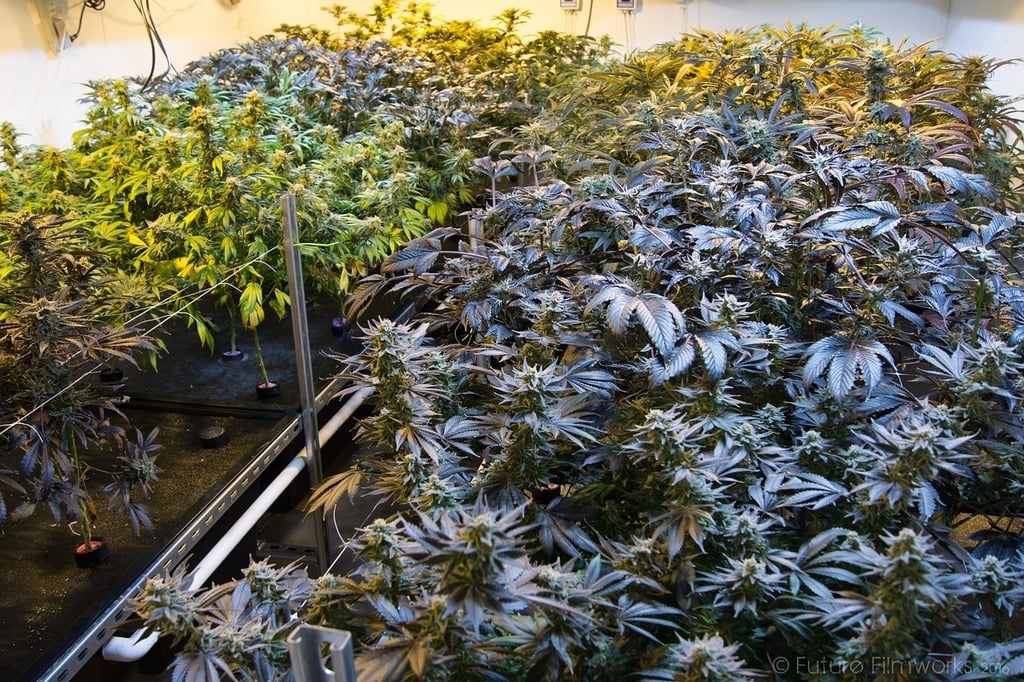California police have been busy this year. They’ve shut down illegal marijuana farms across the state. The numbers are huge – nearly $480 million worth of illegal weed seized since January.
Governor Gavin Newsom shared the news Wednesday. State teams have grabbed almost 270,000 pounds of illegal pot. They’ve also destroyed more than 260,000 marijuana plants. That’s like wiping out several football fields worth of illegal crops.
The crackdown involved 111 separate raids. Police arrested 112 people. They found 52 guns and took more than $230,000 in cash. These weren’t small operations – they were big illegal businesses.
“Illegal cannabis operations threaten the success of the legal market,” Newsom said. “We owe it to our businesses and consumers to take down these bad actors every chance we can.”
Think of it like this. Legal pot shops pay taxes and follow rules. Illegal growers don’t. This makes legal weed more expensive. When illegal weed is cheaper, people buy that instead. Legal shop owners lose money.
California created a special team called the Unified Cannabis Enforcement Task Force in 2022. Different police departments work together. They share information and plan bigger raids. It’s like having all the best players on one team instead of many small teams.
The state just made things harder for legal shops. They raised the tax on pot sales from 15% to 19% starting July 1st. This means a $100 purchase now costs $119 instead of $115. That extra $4 might not sound like much. But it adds up when people shop regularly.
Legal marijuana sales have dropped badly. The first three months of 2025 brought in $1.09 billion. That’s 30% less than the best quarter in 2021. It’s also the worst quarter in five years. Legal shops are struggling.
The biggest problem is size. Illegal growers make about 11.4 million pounds of pot each year. Legal businesses only make 1.4 million pounds. That’s like comparing a swimming pool to a bathtub. Illegal operations are much bigger.
One recent raid in the Central Valley was massive. Police covered 4,600 square miles. They used 71 search warrants. They found 105,700 plants and grabbed 22,057 pounds of processed weed.
Since 2019, California has hit illegal operations hard. They’ve done 1,213 raids total. They’ve seized nearly 1.6 million pounds of product. They’ve destroyed almost 2.7 million plants. The total value reaches $2.8 billion.
These illegal farms cause other problems too. They steal water during droughts. They use dangerous chemicals that poison the land. Many have unsafe electrical setups that could start fires. Some connect to organized crime groups that ship California weed to other states.
Police don’t just find marijuana during raids. They regularly discover weapons, piles of cash, and dangerous conditions. It’s not just about pot – it’s about safety and crime.
The state values seized plants at about $850 each. Processed marijuana gets valued at $1,670 per pound. These numbers help calculate how much illegal operations lose when police shut them down.
California uses money from legal pot taxes to fund these raids. This seems fair – legal businesses help pay to eliminate their illegal competition. Local police departments can also get grants to help with enforcement.
Similar Posts
But here’s the catch. Illegal operations still control about 60% of California’s pot market. Even with all these raids, most people still buy illegal weed. Why? It’s cheaper and easier to get.
Legal pot businesses face tough rules. They must test their products for safety. They pay high taxes. They follow strict packaging rules. They can only sell in certain places. All this costs money. Illegal growers skip all these steps.
The recent tax increase makes things worse for legal shops. Many might close down. Others might struggle to stay open. When legal options disappear, people go back to illegal dealers.
California calls its legal pot market the world’s largest. Officials want to protect it. But the numbers show illegal operations are winning the competition. They’re bigger, cheaper, and everywhere.
The enforcement campaign will likely continue. Police keep finding and shutting down illegal operations. But new ones keep starting up. It’s like playing whack-a-mole at an arcade game.
The real challenge isn’t catching criminals. It’s making legal weed competitive with illegal options. Until legal pot becomes more affordable and accessible, people will keep buying from illegal sources. No amount of police raids can change basic economics.
This situation affects everyone in California. Legal businesses create jobs and pay taxes that fund schools and roads. Illegal operations dodge taxes and sometimes harm the environment. The outcome of this battle will shape California’s marijuana industry for years to come.



















